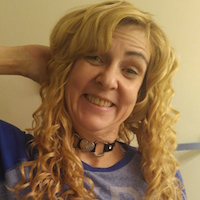Frank Ostaseski said one of the things his teachers have shown him is to welcome all.
Frank’s teachers are the dying, as he is a pioneer in the field of hospice work.
I was introduced to him through one of Tara Brach’s most recent podcasts—I must say, in my experience he demonstrates a rare sensibility.
After the recent Boston tragedy, just how do we do welcome all?
After our child dies, how do we welcome the grief and loss?
After we lose our home, how we do welcome our poverty?
After a boy disrespects us or takes advantage of us, how do we welcome the hurt?
After we get a death sentence, or our life changes on a dime due to the three heavenly messengers Buddha met on the road: Sickness, Old Age and Death, how do we welcome them and how are they heavenly?
One of my favorite people asked me if he thinks people with money have problems.
We all have problems. Problems show us how to grow. Loss teaches us about grief. Betrayal teaches us about forgiveness.
But we have to learn and it’s hard.
One of my young friends tonight said: People are who we need them to be.
My kneejerk response was to say no. Luckily, my kneejerk lasted a second before my heart heard the grain of truth in the statement.
You see, as a poet, I always rebelled against the idea that poetry is subjective as my knee told me my experience of others is not about me. Poetry must hold its own truth no matter who reads it. Individuals are who they are, yet we attract certain people to us and how we relate to individuals is as subjective as how we relate to poetry.
I have two siblings but we all grew up with different parents and trust me—they were the same to everyone else.
If people are who we need them to be, what do we learn about self in that process? That is the process of life, learning about self.
The better we know self, the better able we are to see what life shows us.
As I learn over and over again, it’s rarely about me.
If we are to welcome all of life, no matter what, what does that teach?
And how does that prepare us for death?
Asking the questions is easy compared to feeling the answer.
That is the answer: we have to feel life. We have to feel the loss. We have to feel the betrayal. We have to feel the fear. We have to feel what life offers us, even when the feelings are uncomfortable and even terrifying.
Trust me, I am a pro at finding ways to avoid what I feel but I am getting better. I am in fear more often than not.
For a long time I used to feel anger—nw I feel grief.
I also feel joy and peace and hope.
I don’t have much experience with the dying like Frank. I don’t have much experience burying people—and my guess is I am going to live a long time so I can learn.
I talk to my dad all the time—he turns 87 this year. I cannot imagine his depth of feeling.
I believe as we get older, we feel things more profoundly, in a deeper way.
I believe denial loses its shoes and does not dance as well. I believe what hurts, hurts more. I believe we love more and more strongly.
And, I believe we are better able to process the hurt and the joy—I don’t think it gets any easier.
So how can I write a post that tells us to welcome all, after Boston?
This man Frank touched and opened my heart. Most touched directly by Boston are probably numb and in shock—all there have my prayers and compassion. I cannot fathom it.
I write this because life teaches me that we won’t heal unless we feel the feelings…and healing is not easy. Now may not be the time to feel Boston for many, though the whole Nation felt it in one way or another.
Life gives us the opportunity to heal by living the joy and the sorrow.
Buddha claimed there were over 10,000.
My guess is there are as many as there are souls who come and go on earth.
Like elephant Spirituality on Facebook.
Ed: Bryonie Wise






Read 1 comment and reply